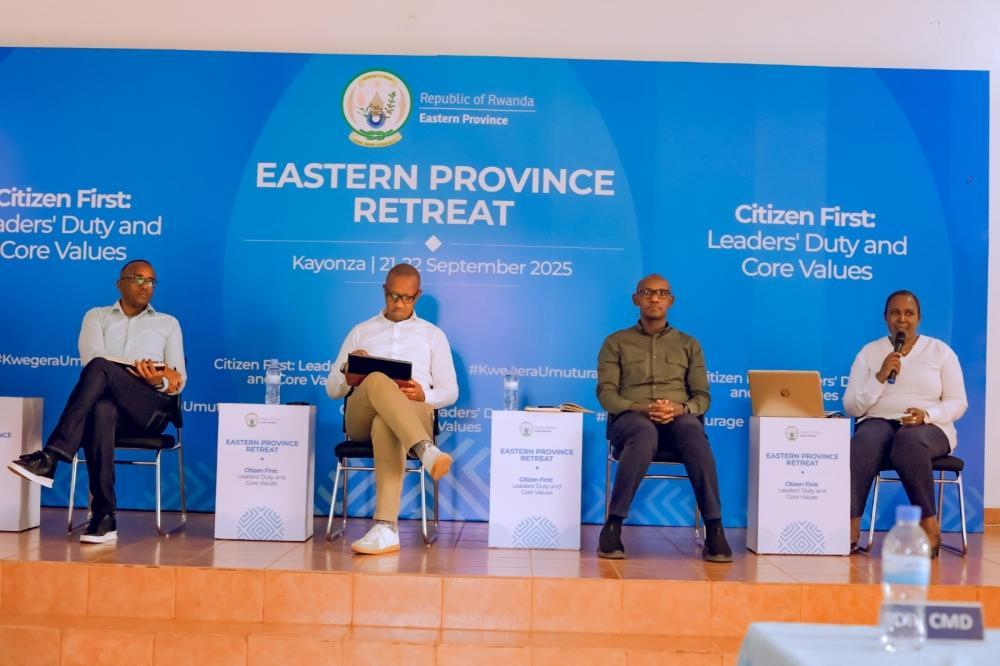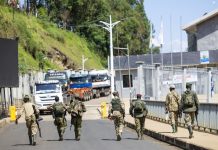Africa-Press – Rwanda. Eastern Province leaders convened for a provincial retreat on September 22 and agreed to adopt the Geo-Spatial Hub, a satellite-based data system designed to strengthen land administration, resolve long-standing disputes, and improve compliance with master plans.
The government has pledged to cover all costs related to procurement, deployment, and the training of staff who will oversee its implementation according to officials from the Rwanda Space Agency.
Faustin Munyazikwiye, Chairperson of Bugesera District, described the system as a breakthrough in land governance. He explained that expropriation processes often face complications due to reliance on paper records, which sometimes leads to already-expropriated land being encroached upon again.
“This system will help us manage state assets wherever they are located. With this satellite-based technology, we will be able to address many of these persistent land-related issues,” he said.
Rwanda-space-agency-official-discusses-priorities-as-body-steps-up-awareness-effort
Georges Kwizera, Director of Technology at Rwanda Space Agency, elaborated that the Geo-Spatial Hub uses satellite imagery to map every parcel of land in the country, removing the need for land officers to visit the field for basic dispute resolution.
He noted that the system integrates with the Unique Parcel Identifier (UPI) database, enabling authorities to receive automatic notifications whenever a new structure appears on a parcel that was previously undeveloped.
“This will help enforce master plans, reduce informal settlements, and promote orderly urban growth. The hub also functions as a consolidated geospatial data centre serving government entities, academia, and the private sector, with capabilities to map disaster-prone areas, forest coverage, irrigation, mining sites, and settlement patterns,” he said.
Between December 2023 and February 2024, only 34 percent of the required land information in Eastern Province had been collected, which is 81,173 records out of a target of 251,746.
District performance varied sharply, with Rwamagana collecting 96.4 percent of its records while Bugesera achieved just 11.6 percent. Out of more than 2.1 million registered parcels across the province, over 250,000 still lack complete information and are provisionally registered under the government.
Ngoma district had the highest proportion of incomplete parcels at 15.1 percent, followed by Bugesera at 13 percent.
Kirehe-national-land-authority-steps-in-to-address-backlogs-in-land-related-issues
Eastern Province Governor Pudence Rubingisa emphasized that the new system will address these inefficiencies by reducing errors and improving compliance.
“It is a tool that will allow us to identify the location, type, designated purpose, and current use of land without the need for on-site inspections. This will minimise errors and streamline land services,” he said.
Bugesera and Rwamagana, both designated as satellite cities, have already requested access to the system, with other districts expected to follow.”
Officials also believe its adoption will help ease backlogs in land-related cases that continue to delay service delivery.
The retreat also highlighted the broader applications of space technology. In agriculture, satellite data and drones are increasingly being used to provide real-time insights into weather conditions, crop yields, and soil health.
Such precision agriculture allows farmers to optimise inputs, increase productivity, and adopt more sustainable practices.
For More News And Analysis About Rwanda Follow Africa-Press






